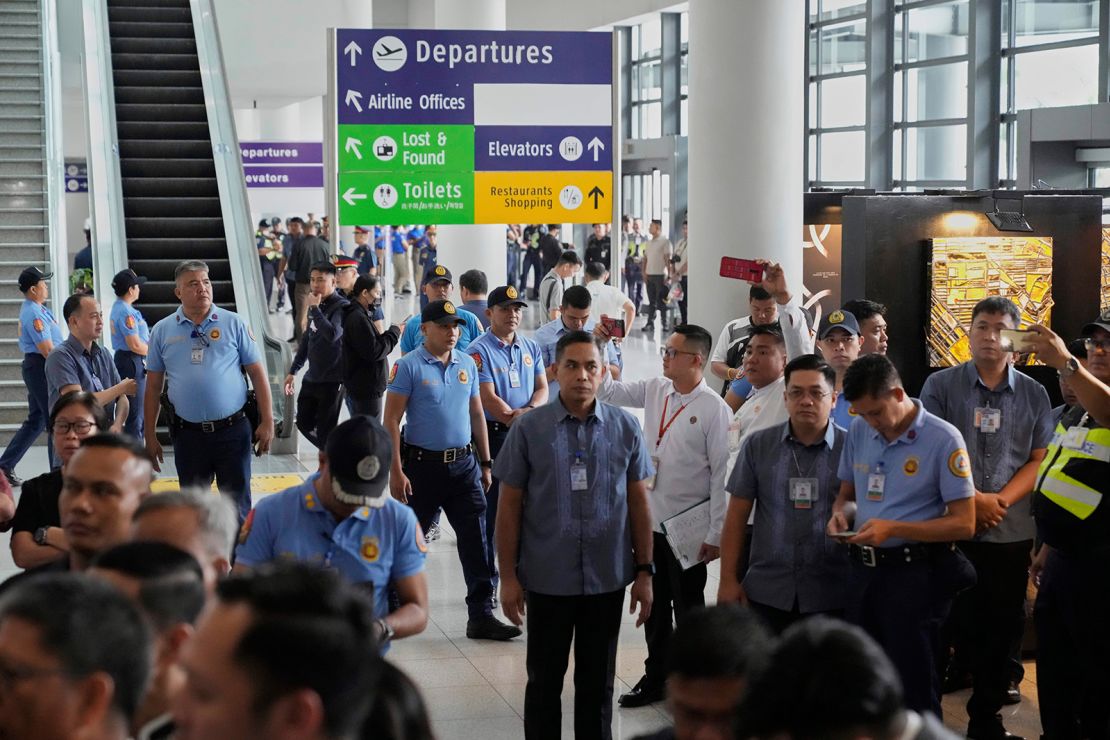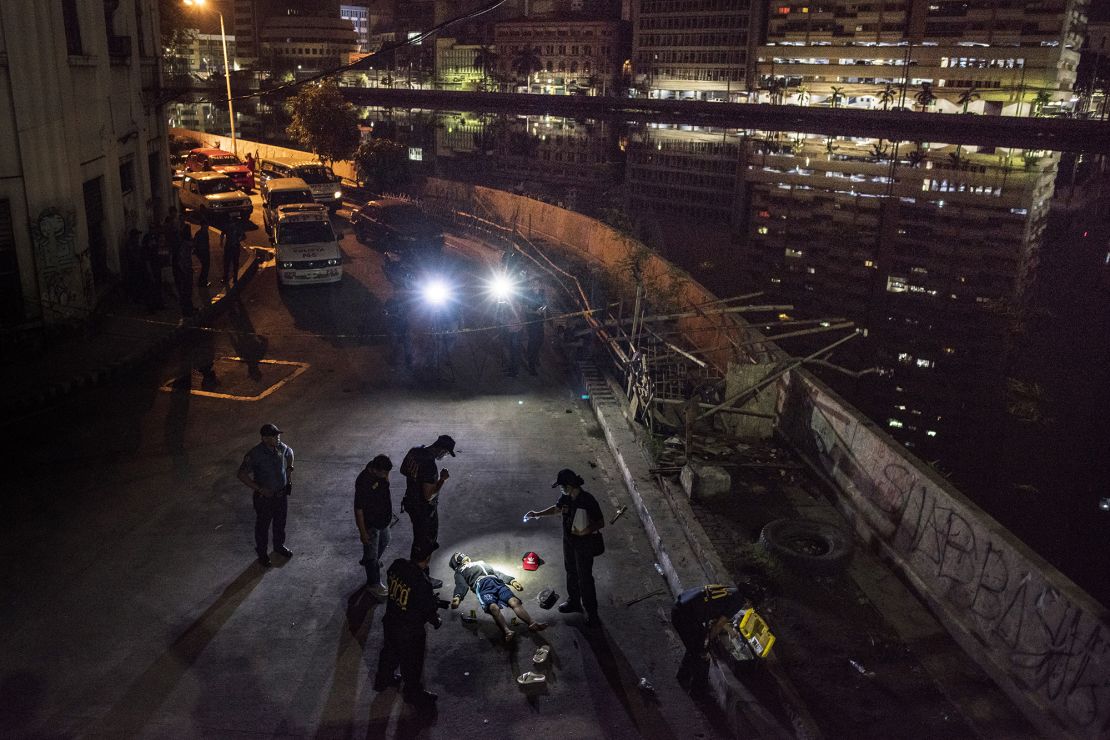Manila, Philippines
CNN
—
Former President Rodrigo Duterte was arrested by the Philippine government on Tuesday after it said it received an International Criminal Court (ICC) warrant accusing him of crimes against humanity.
Duterte has been investigated by the ICC over his brutal anti-drugs crackdown during his time in office that killed more than 6,000 people based on police data, though independent monitors believe the number of extrajudicial killings could be much higher.
Duterte, 79, was taken into custody amid chaotic scenes at the main airport in the capital Manila after returning to the Philippines from Hong Kong on Tuesday.
Interpol’s Manila office had received “the official copy of the arrest warrant from the ICC” on Tuesday morning, according to a statement from the Presidential Communications Office.
“Upon his (Duterte’s) arrival, the Prosecutor General filed an ICC notification for an arrest warrant against the former President for crimes against humanity,” the statement said, adding that Duterte is currently in the custody of authorities.
Duterte questioned the basis for the warrant.
“What is the law and what is the crime that I committed?” he said in a video posted online by his daughter Veronica “Kitty” Duterte.
CNN has reached out to Interpol and the ICC for comment.
Previously labeled “Asia’s Trump” by some commentators due to his unorthodox leadership style and bombastic rhetoric, Duterte swept to power in 2016 on a promise to wage war against drugs and drug pushers in the Southeast Asian nation.
The ensuing brutal crackdown killed thousands – many of the victims were young men from impoverished shanty towns, shot by police and rogue gunmen as part of a campaign to target dealers.

The bloodshed prompted an investigation by the ICC and a monthslong House of Representatives inquiry, as well as a separate Senate inquiry led by the cousin of the current president.
Duterte has repeatedly denied the extrajudicial killing of alleged drug suspects, although he also openly admitted to ordering police to shoot suspects who resist arrest.
Duterte withdrew the Philippines from the ICC, but under the ICC’s withdrawal mechanism, the court keeps jurisdiction over crimes committed during the membership period of a state – in this case, between 2016 and 2019, when the Philippines’ pullout became official.
Meanwhile, the government of President Ferdinand Marcos Jr., who was elected in 2022, has indicated that Duterte could be handed over to the court, Reuters reported.
“Our law enforcers are ready to follow what law dictates, if the warrant of arrest needs to be served because of a request from Interpol,” Presidential Communications Undersecretary Claire Castro told reporters on Monday, according to Reuters.
At Sunday’s event in Hong Kong, Duterte lashed out at the ICC amid speculation the global body would issue a warrant for his arrest over his role in the drugs crackdown.
“From my own news, I have a warrant … from the ICC or something,” Duterte told his supporters in Hong Kong.
“What did I do wrong? I did everything that I could in my time, so there is a little bit of quiet and peace for the lives of the Filipinos.”
Responding to reports that the former president was in custody, his former spokesperson Harry Roque said: “The warrant of arrest has no basis because it was issued at a time when we are no longer a member of the ICC.”
“What is happening right now is unlawful detention,” Roque said in a livestream on Facebook. “We have not seen the warrant of arrest from the police or Interpol.”
But rights groups welcomed Duterte’s detention and urged the Philippines to hand the former president over to the ICC.
Duterte’s detention “is a critical step for accountability in the Philippines,” said Bryony Lau, deputy Asia director at Human Rights Watch. “His arrest could bring victims and their families closer to justice and sends the clear message that no one is above the law.”
Before becoming president, Duterte laid the groundwork for his bloody war on drugs that pitted police armed with impunity against drug users, small-time dealers and kingpins.

As mayor of Davao City, a metropolis of 1.5 million people on the southern island of Mindanao, Duterte built a national reputation over two decades for his no-nonsense approach to crime.
He advocated a hardline approach to criminals and claimed to have drastically reduced Davao’s previously high rates of violent crime. But along with this reputation came allegations that he was connected to extrajudicial killings by a well coordinated group of vigilantes.
In his last campaign speech before the 2016 election he told a crowd to “forget the laws of human rights.”
“If I make it to the presidential palace, I will do just what I did as mayor. You drug pushers, hold-up men and do-nothings, you better go out. Because as the mayor, I’d kill you,” Duterte said.
As president, Duterte embraced the same unfiltered rhetorical style he displayed on the campaign trail. Shortly after taking office, he referred to then-US President Barack Obama a “son of a bitch” – though later apologized and said he was referring to a journalist.
Despite frail health and the looming threat of an ICC arrest warrant, Duterte in October registered to run for mayor of his southern home city. The move was widely seen as an attempt to to strengthen his scandal-hit political dynasty amid a bitter falling out between his daughter Vice President Sara Duterte and Marcos Jr.
This is a developing story and will be updated. CNN’s Isaac Yee and reporter Jinky Jorgio contributed reporting.

